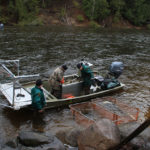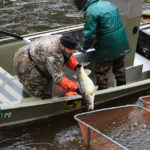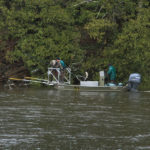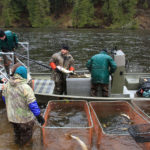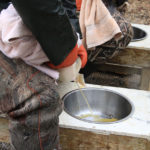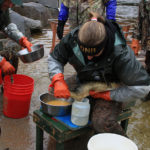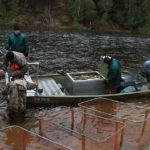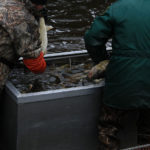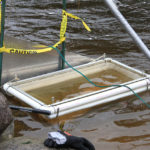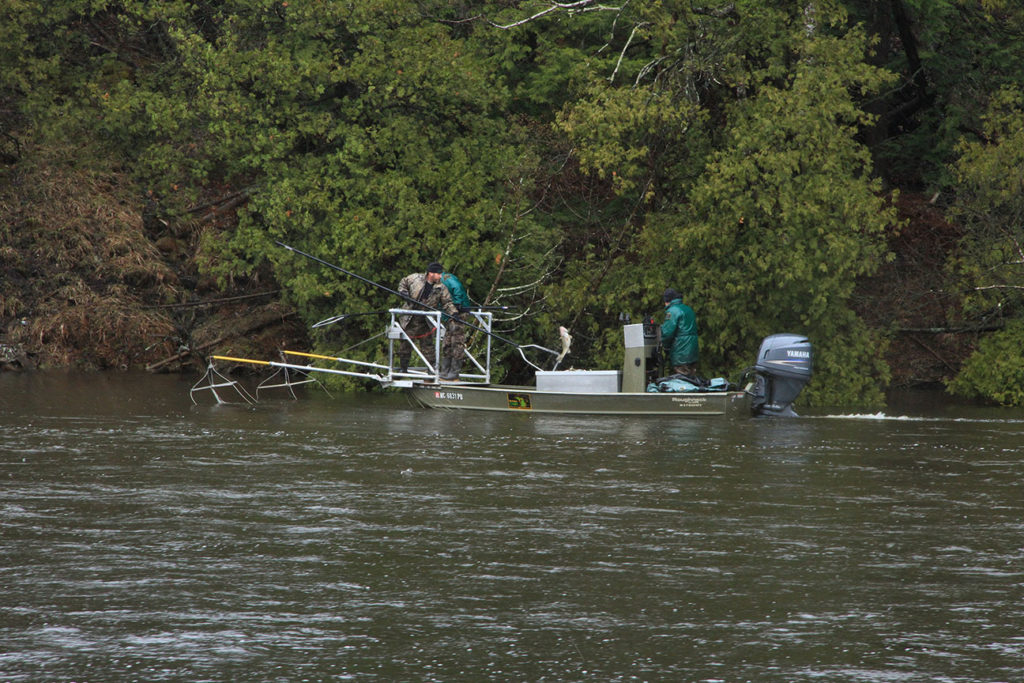
I had the opportunity to observe fisheries biologist form the Michigan DNR collection Walleye eggs today. I joined a friend and headed to the Muskegon River in Newaygo, below the Croton Dam. We thought we were early but found the boat working on the river when we arrived just below the Croton Dam. After moving to the Pine Street boat launch we found the rest of the crew waiting for the boat to return with fish. While the local news media was crying about the rain and snow, these guys said it was one of the best weather days they have had to work in while collection eggs.
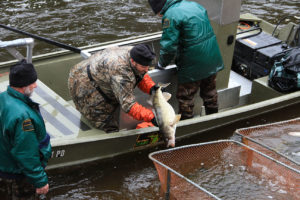
Three people work the boat by lowering a pole with tentacle looking conductors hanging into the water on either side of the front of the boat. With a charge of 1 to 2 amps at 350 volts dc current, fish are stunned for about 15 feet from the boat. Once stunned, the fish surface and are collected with long handled nets and placed in a live tank with fresh river water circulating through. When the tank is full the boat returns to the landing and the fish are sorted by sex and readiness to release the eggs. “Green” females are returned to the river and ripe females and males are placed into separate holding pens along the river. The largest fish of the day was nearly 14 pounds.
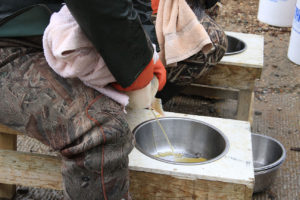
The eggs are worked out of the female fish into steel pans and the sperm is taken from the males and mixed with water that is added to the eggs which is then placed in pails of river water that has been mixed with a powdered clay to keep the eggs from sticking together. They are then placed in a holding net in the river to “harden them off” for an hour. They can then be treated with iodine and loaded for transport back to the fish hatchery.
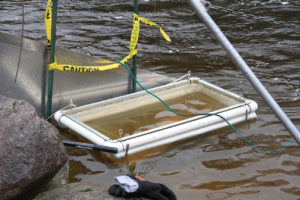
Yes, these fish are raised to stock our fishing waters but also because of the lack of natural areas with the appropriate make up of gravel areas needed to protect the eggs and small fry while they develop. In southern Michigan, there is very little natural spawning area available, so fish must be raised and stocked in lakes and rivers to provide for our fishing enjoyment.
My grandfather used to take to me Wolf Lake Fish Hatchery west of Kalamazoo on M43 when I was a young boy. I really enjoyed seeing the fish and still do. I love to stop at fish hatcheries whenever possible and love to see the process as well. It is also very educational. Next time you see a fish hatchery sign while traveling, stop in and take a tour. Wolf Lake is still and excellent place to visit with its interpretive center and tours.
 Click on the title of a post to view a full gallery of images.
Click on the title of a post to view a full gallery of images.
